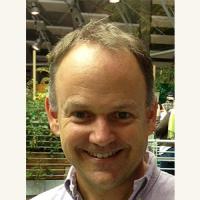SystemX Affiliates: login to view related content.

The only known systems that exhibit truly intelligent, autonomous behavior are biological. If we wish to build machines capable of such behavior, then it makes sense to learn as much as we can about how these systems work. Inspiration is a good start, but real progress will require gaining a more solid understanding of the principles of information processing at work in nervous systems. Here I will focus on three areas of investigation that I believe will be especially fruitful: 1) the study of perception-action loops, in particular how sensory information is actively acquired via motor commands, 2) developing good computational models of nonlinear signal integration in dendritic trees, and 3) elucidating the computational role of feedback in neural systems.
Bruno OIshausen is Professor of Neuroscience and Optometry at the University of California, Berkeley. He also serves as Director of the Redwood Center for Theoretical Neuroscience, an interdisciplinary research group focusing on mathematical and computational models of brain function. He received B.S. and M.S. degrees in electrical engineering from Stanford University, and a Ph.D. in Computation and Neural Systems from the California Institute of Technology. From 1996-2005 he was Assistant and subsequently Associate Professor in the Departments of Psychology and Neurobiology, Physiology and Behavior at UC Davis. Since 2005 he has been at UC Berkeley. Olshausen's research aims to understand the information processing strategies employed by the brain for doing tasks such as object recognition and scene analysis. The aim of this work is not only to advance our understanding of the brain, but also to discover new algorithms for scene analysis based on how brains work.


